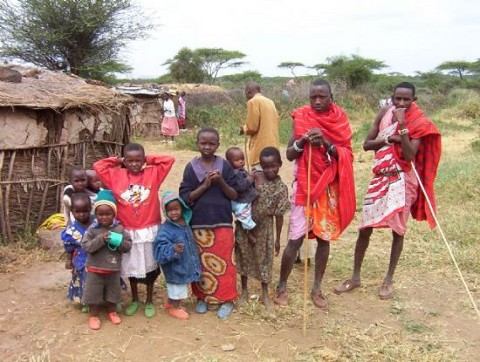Excellent mission team prep

The standards of STM
excellence that our committee compiled a few years ago is a good place for anyone
interested in the subject to start. Here
is Standard #6: APPROPRIATE
TRAINING. More people should look at all
seven of the standards as a basis for assessing the quality of their projects.

An excellent short-term mission prepares and equips all
participants for the mutually designed outreach, and is expressed by:
6.1 Biblical,
appropriate, and timely training
6.2 On-going
training and equipping (pre-field, on-field, post-field)
6.3 Qualified
trainers
In all our STMs, we strive to employ biblical, appropriate,
and timely training for all participants (senders, goers, receivers) which
equips them to implement the mutually designed program (1 Cor. 9:25-27; 2 Tim.
3:16-17). We acknowledge that relevant training will benefit all STM
participants, fostering understanding, growth, and spiritual fruit while
helping to prevent offense, damage, and poor stewardship. We further
acknowledge that training should take place during each stage of the STM
(pre-field, on-field, and post-field) by qualified trainers, and that regular
evaluation of training results should take place. Although training is unique
to each mutually designed outreach, there are some training ‘norms’ (below)
that usually apply to all participants (goers, senders, receivers).
6.1 Biblical,
appropriate, and timely training
We pledge to provide on-time biblical and appropriate
training for all participants (senders, goers, receivers) emphasizing the
character traits, knowledge, skills, and attitudes essential for effective
ministry in an intercultural context. The outcome of such training should
result in a clear understanding of how to correctly do the task or assignment
while maintaining effective relationships with other participants. We further pledge
to have our participants agree to follow all guidelines, policies, and training
the given STM requires.
Sending Supporters
Our STM assures that sending supporters are trained for one
or more of these six primary sending
 supporter roles:
supporter roles:
(i) Prayer
supporters
(how to intercede for given goer-guests and all aspects of
the STM during the pre-field, on-field, and post field stages)
(ii) Financial
supporters
(how, where, and by when to provide financial support)
(iii) Logistical
supporters
(how to make arrangements during the pre-field process to
provide any needed logistics help during the STM process)
(iv) Emotional
supporters
(how to provide moral and emotional enouragement)
(v) Communication
supporters
(how to call, write, or produce communication to the other
‘back home’ sending supporters and all others with whom the goer-guests need to
stay in touch while on-field)
(vi) Re-Entry
supporters
(how to meet with the returning short-termers and ask ‘intelligent
questions’ in an emotionally safe environment; how to help steer goer-guests to
appropriate referrals or assistance if there are unresolved issues or certain
unmet needs)
Goer-Guests
Our STM assures that goer-guest leaders and goer-guest
followers are trained in these six primary areas:
(i) Cross-cultural
training
(such as cross-cultural theory, comminucation, and
simulation games, simulated settings; host culture/people specifics; language
training and rehearsal; re-entry training)
(ii) Personal
preparation
(such as biblical basis for mission; purpose of outreach;
MISTM theory; goer-guests’ responsibility to all participants; personal
spiritual preparation; team covenant development; team building/team spiritual
preparation; prayer and spiritual warfare training; debriefing; follow-up
training and integration)
(iii) Logistics
training
(such as airline or other round trip travel arrangements;
travel documents; prescriptions, immunizations, health, and hygiene; on-field
housing, transportation, food, dress and site orientation; packing; risk and
liability issues; customs and immigration; policies [cancellation, dating,
smoking/drinking, photos and video, personal CD players, begging, etc.])
(iv) Intended
activities preparation
(including training for and rehearsal of the mutually
designed on-field activities)
(v) Financial
preparation
(such as budget development; fund-raising plans, money
management, and funding deadlines)
(vi) Additional
items unique to the given STM
Host Receivers
Our STM assures that field facilitators and key intended
receptor leadership are trained in these ten primary areas:
 (i) Logistical
(i) Logistical
support for goer-guests
(ii) Program
delivery support for goer-guests
(iii) Identifying
our strategic field activities leveragable through goer-guests
(iv) Blending
our field-supplied leadership with their sending entity-supplied leadership
(v) Risk
management and security issues for goer-guests
(vi) Cross-cultural
training
(grasping the goer-guests’ worldview)
(vii) Recruiting
from goer-guests for field needs
(viii) Outcomes follow-up
(ix) Relational
issues
(x) Reinforcing
issues or concerns and other pre-field training during on-site orientation
(such as cultural issues, appropriate conduct, purpose and philosophy of the
outreach, explanation of risk management and security issues, and other items
agreed to in the mutual design of the outreach)
6.2 On-going training
and equipping (pre-field, on-field, post-field)
We pledge to provide such training during the entire STM
process:
• Pre-field (many of the items listed above)
• On-field (ongoing training, re-entry training,
debriefing)
• Post
field (debriefing and follow-up)
6.3 Qualified
trainers
We pledge to provide trainers who are experienced and
knowledgeable in the items listed above, and who can provide effective training
and facilitate beneficial learning. We pledge that our training program will
implement timely and thorough evaluation of the STM training as a means of
improving our training program.

Leave a Reply